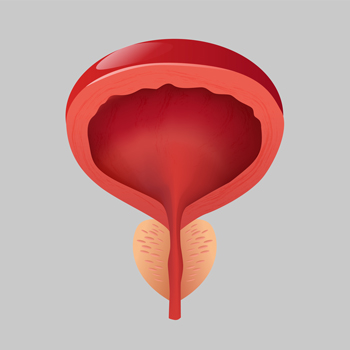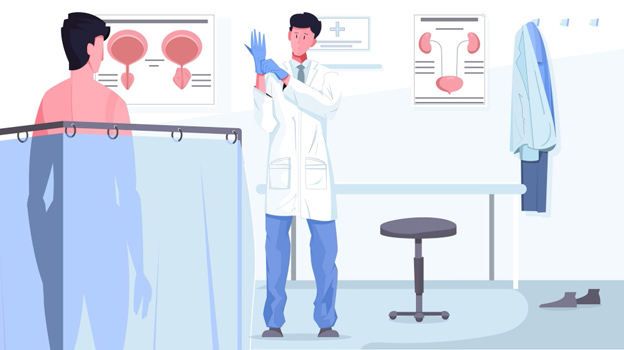Are you afraid to pee?
Let us talk about BPH.


BPH (Benign Prostatic Hyperplasia)
Enlarged Prostate
What is prostate?
The prostate is located just below the bladder and in front of the rectum. It is about the size of a walnut and surrounds the urethra. It produces fluid that makes up a part of semen.
How did the prostate get its name?
The origin of the name “prostate” is quite curious. The word is from the Greek “prostates”, to stand before. The anatomist Herophilus called it the prostate because, as he saw matters, it stands before the testes.
What are the types of prostate disease?
- Before 40-50: Prostatitis
- After 40-50 years: Enlarged prostate, Prostate cancer.
- It is known that 50% of people in their 50s, 60% in their 60s, 70% in their 70s, and 90% in their 80s suffer from this enlarged prostate.
What is an enlarged prostate?
As aging progresses, the prostate grows larger. So, pressing the urethra passing through the prostate gland, and urinary excretion is hindered by this pressure, resulting in various symptoms of urination.
What is the cause?
The exact cause is not clearly identified. However, it is known that aging, genetic factors, and family history are related.
What are the symptoms?
Stage1:
- Frequent urination: It is common to urinate frequently, especially two or more times during sleep, which can lead to frequent nocturnal urination.
- Delayed urination: When you urinate, it does not come out quickly, and you must wait for a while to urinate.
- Weak urine stream: The urine stream gradually becomes thinner, and the urine comes out only when you apply strength to the lower abdomen, or it is cut off in the middle, and the urination time is prolonged.
Stage2:
Even after urinating, you may want to go to the bathroom again, you may irritative symptoms (e.g., painful or urgent urination), and in extreme cases, you may not urinate suddenly, and you may find yourself in the emergency room.
Stage3:
As the amount of residual urine increases, reflux occurs in which urine rises upto the kidneys, which causes hydronephrosis, and in severe cases, urosepsis may occur.
How is the diagnosis?
- Check the size, shape, and hardness of the prostate through a digital rectal exam.
- Measures the post-void residual in the bladder through ultrasound.
- To check the inside of the bladder, or to determine the degree of urethral stricture, a bladder endoscope may be considered.
How is the treatment done?
Medication:
- Alpha blocker: helps smooth urination by relaxing smooth muscles of the prostate and bladder neck.
- 5-alpha-reductase inhibitors: You can improve urine flow by reducing the size of the prostate. Long-term use for 3 to 6 months or longer is known to reduce the size of the prostate by 20%.
- Alternative medication: OTC Saw Palmetto 160 mg twice a day.
Surgical treatment:
- TURP: Transurethral Resection of the Prostate
- TUIP: Transurethral Incision of the Prostate
- TULIP: Transurethral Laser Induced Prostatectomy
Other treatment: If surgical treatment is difficult, temporarily or permanently, a stent may be installed in the prostate urethra, or a suprapubic catheter may be installed through the small hole into the bladder.
Complications?
Benign prostatic hyperplasia is not a condition requiring emergency treatment. Also, simply because the prostate is large, not all patients complain of symptoms. However, if urination problems continue for a long time due to an enlarged prostate, various complications such as bladder function decline, kidney function decline, infection, and bladder stones may occur.
Is an enlarged prostate and prostate cancer related?
An enlarged prostate is a benign disease and is not causally related to cancer.
However, if there is an enlargement, it may interfere with the detection of prostate cancer and may not be clearly detected on an ultrasound or digital rectal examination, so regular checkups are required.
Proper lifestyle
- Increase intake of fiber, vegetables, fruits, and fish.
- Try to control your weight, especially to reduce the amount of visceral fat.
- Do not hold urine for too long.
- Do not smoke or drink too much.
Steven Koh, MD
Family Medicine
Edmonds Medical Clinic